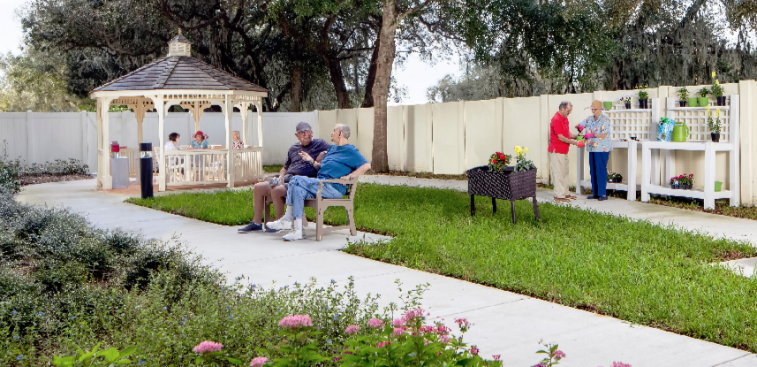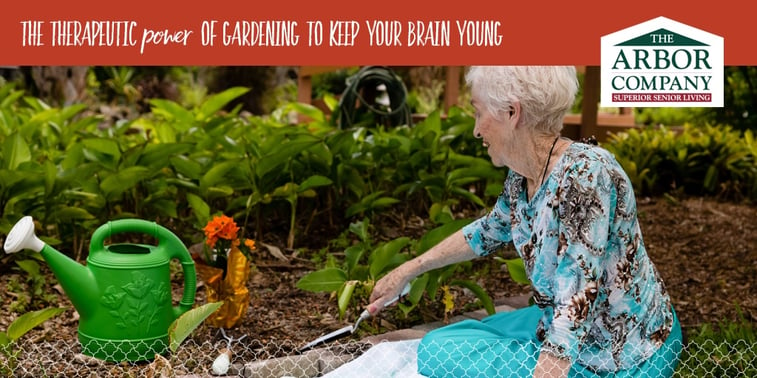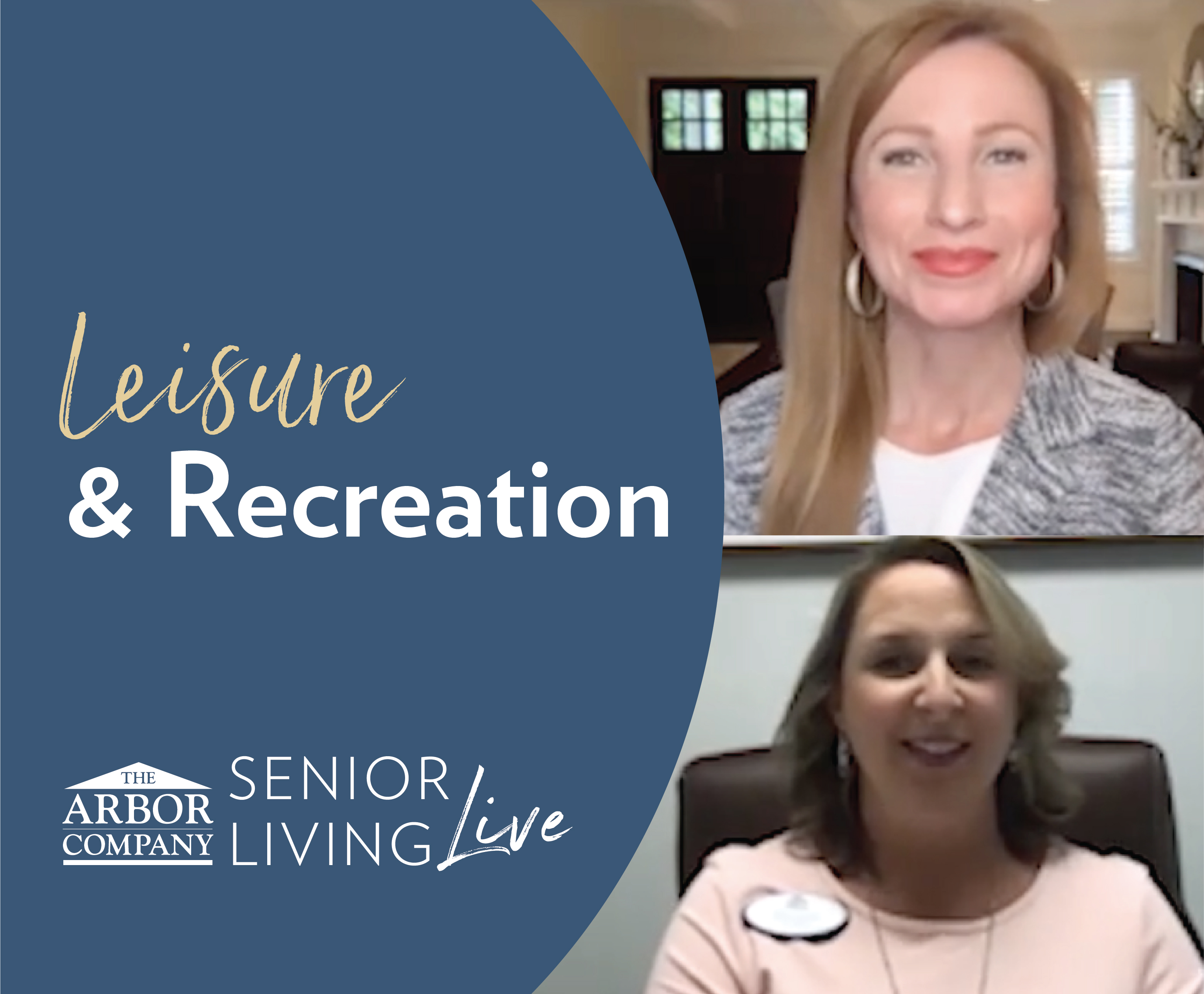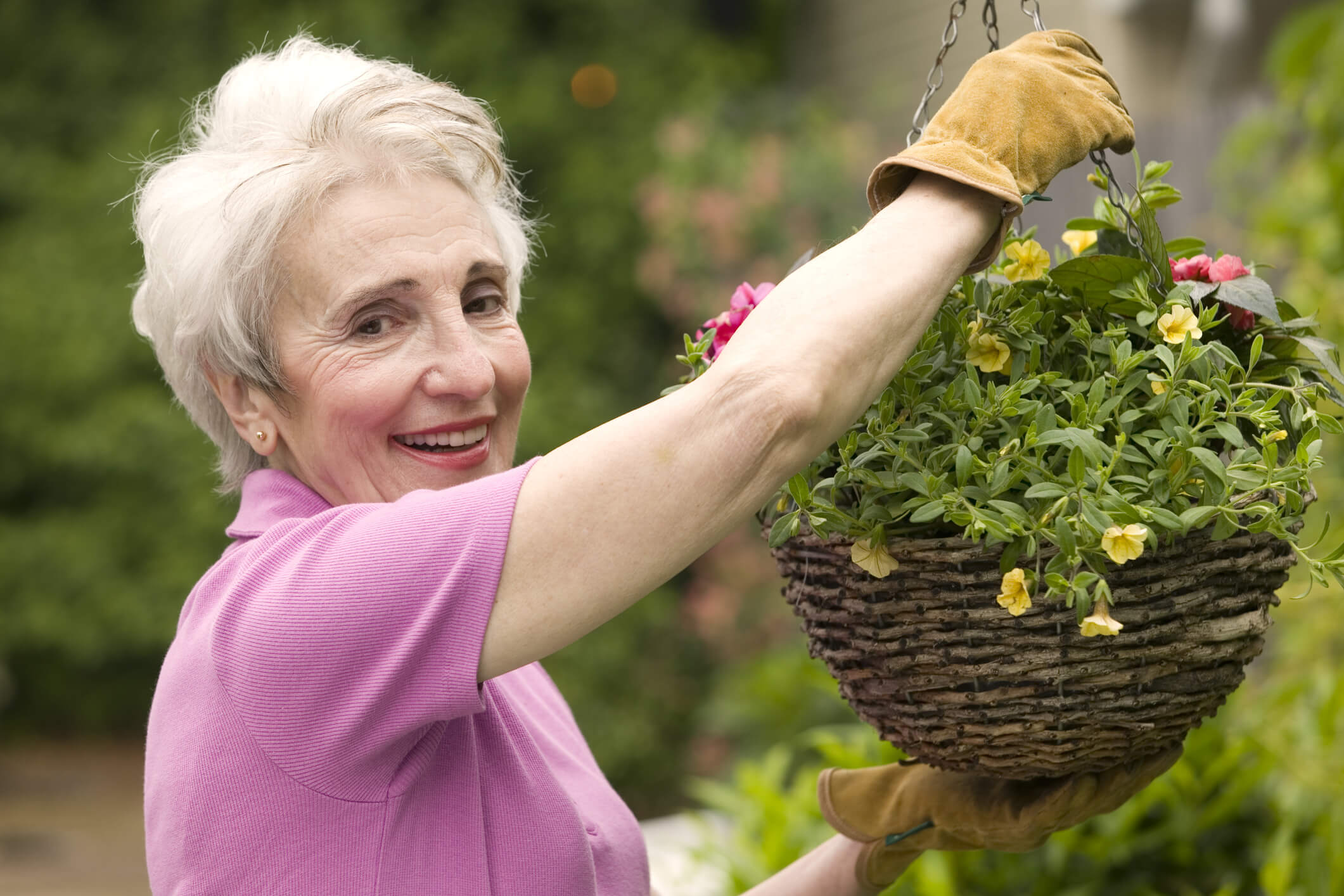
Is there anything better than the spring season? There is certainly much to be said about a season that beckons us all outside to enjoy warmer temperatures and take big breaths of fresh air that smells like rain. Colorful flowers push up from the dirt, and everyone has an innate desire to throw open the windows to clear out any stale air left over from winter.
Since spring does encourage more outdoor activity, in temperatures that are reminiscent of Goldilocks—not too hot, not too cold—most people dust off their jackets and tennis shoes to head outside. This year, consider grabbing your gardening gloves and tools. Not only will you enjoy the time gardening, you will be able to reap some mental and emotional benefits as well.
Cognitive Benefits
Gardening has been studied as a therapeutic activity across generations. For seniors specifically, gardening has been shown to have a bounty of cognitive benefits. The act of gardening, whether on a small scale or a larger one, requires a multi step thinking process. Senior gardeners are given the opportunity to practice cognitive skills that range from planning to judgment to critical thinking. Having the chance to use these cognitive skills on a regular basis, and through a hobby that is enjoyable, can be therapeutic for aging adults.
Emotional Benefits
Beyond the cognitive benefits of maintaining a garden, seniors often get a variety of emotional benefits as well. Working in a garden, for example, has been shown to decrease perceived stress. In a study reported by HortTechnology, seniors who participated in gardening reported less perceived stress than those seniors who participated in an indoor exercise class.
This decrease in perceived stress is important. Stress can lead the body to increase cortisol production, which can lead to a litany of negative health conditions such as high blood pressure or heart disease. This high blood pressure can cause reduced blood flow to the brain or even an increased risk of stroke. Clearly, gardening can be a way to decrease these negative consequences.
Beyond the stress factor, seniors who garden tend to have the chance to be more social with peers and enjoy the benefits of being in nature. From increased Vitamin D production due to healthy sun exposure to building support networks of other gardening peers, gardening can be much more than just an interesting hobby.
Getting Started
If you are interested in starting to garden, go for it! You don’t need a green thumb to have a successful experience. If you are nervous about starting your hobby, consider looking for an introductory class at your senior center or renting a garden plot through your park district. Finally, if mobility issues have you believing that you can no longer work in the dirt, consider a raised gardening bed. These beds are accessible by standing or by sitting in a chair and will give you the chance to explore this hobby in a way that will not frustrate you or your medical condition.
Fortunately, many senior living communities offer raised gardening beds as a part of their landscape. When touring a possible new home, be sure that those gardening adaptations are available for you to enjoy.






